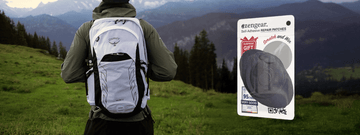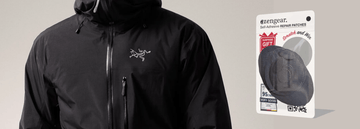Accidents are an inevitable part of life, and they can strike anywhere, even in the most unexpected places. Whether you're at home, at work, or out in the wild, having a basic understanding of first aid can make a significant difference in the outcome of an emergency situation. From minor cuts and burns to more severe injuries, knowing how to provide initial care can help alleviate pain, prevent infection, and even save lives. In this blog post, we'll explore the importance of first aid basics and how being prepared for the unexpected can make a world of difference, especially in wilderness scenarios.
The Power of Basic First Aid Knowledge
Accidents come in all shapes and sizes, ranging from minor mishaps to more serious incidents. Even a simple paper cut can become a breeding ground for infection if not treated properly. Basic first aid knowledge equips you with the skills to handle these everyday injuries effectively. Here are some essential skills to have:
Treating Minor Cuts and Scrapes: Clean the wound with soap and water, apply an antiseptic ointment, and cover it with a sterile bandage. This prevents bacteria from entering the wound and promotes faster healing.

Dealing with Burns: Hold the burn under cool running water for at least 10 minutes to reduce pain and prevent the burn from getting worse. For larger burns, cover them with a clean, non-stick bandage or cloth.
Managing Sprains and Strains: Remember the RICE method - Rest, Ice, Compression, and Elevation. Rest the injured area, apply ice to reduce swelling, use a compression bandage, and keep the injured part elevated to minimize pain and inflammation.
Performing CPR: Cardio-Pulmonary Resuscitation (CPR) is a life-saving technique used in cases of cardiac arrest. Learning the proper technique and rhythm can significantly increase a person's chances of survival until professional medical help arrives.
The Importance of Carrying a First Aid Kit
Having a well-stocked first aid kit on hand is like having a mini medical center at your disposal. A basic first aid kit should contain essentials such as adhesive bandages in various sizes, sterile gauze pads, adhesive tape, antiseptic wipes, tweezers, scissors, instant cold packs, pain relievers, and any personal medications you may need. This kit should be easily accessible and should be checked and replenished regularly to ensure its contents are up to date.
While a general first aid kit is useful, if you're venturing into the wilderness, it's essential to consider the specific challenges that environment might pose.
Wilderness-Specific First Aid
Exploring the great outdoors is exhilarating, but it comes with its own set of risks. When you're away from immediate medical assistance, knowing how to address wilderness-specific injuries is crucial:
Insect Bites and Stings: Insect bites can lead to itching, swelling, and allergic reactions. Clean the area, apply antihistamine cream, and take an antihistamine orally if needed. For severe allergic reactions, such as difficulty breathing, use an epinephrine auto-injector if available and seek help immediately.
Hypothermia and Hyperthermia: Temperature-related illnesses are common in the wilderness. Hypothermia, caused by prolonged exposure to cold, requires gradual warming with dry clothes and warm liquids. Hyperthermia, caused by overheating, can be managed by moving to a cooler area, hydrating, and cooling the body with damp cloths.
Fractures and Dislocations: In a wilderness setting, improvisation is key. Use splints made from available materials, like sticks and clothing, to immobilize fractures. Reduce dislocations by gently realigning the bone and joint and then immobilizing the area.
Dehydration and Water Purification: Inadequate hydration can lead to a range of health issues. Prevent dehydration by carrying enough water and knowing how to purify water from natural sources using methods like boiling, chemical purification, or filtration.
Conclusion
Accidents are unpredictable, but your response to them doesn't have to be. Basic first aid knowledge is a valuable skill set that empowers you to provide initial care, reduce pain, prevent infection, and potentially save lives. Whether you're at home, work, or out in the wilderness, being prepared for the unexpected is essential. Remember to carry a well-stocked first aid kit with you, tailored to the specific environment you're in. This will ensure that you're equipped to handle injuries that are not only common but also unique to the situation you're in.
In the end, the goal of first aid is simple: to promote safety, well-being, and a sense of security. So, take the time to learn the basics, educate your loved ones, and embrace the power of preparedness. You never know when your knowledge might be the beacon of hope in someone's moment of crisis.





